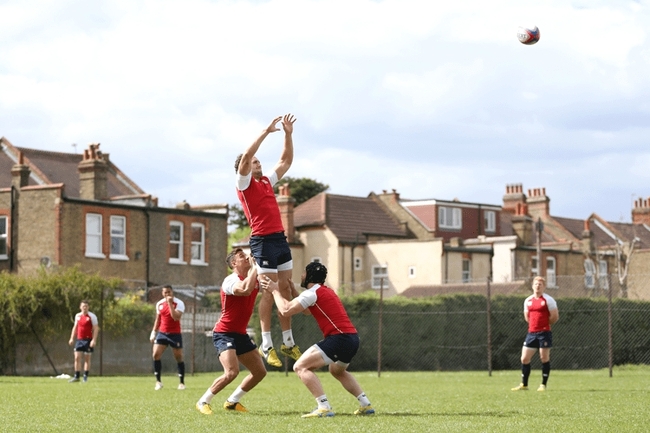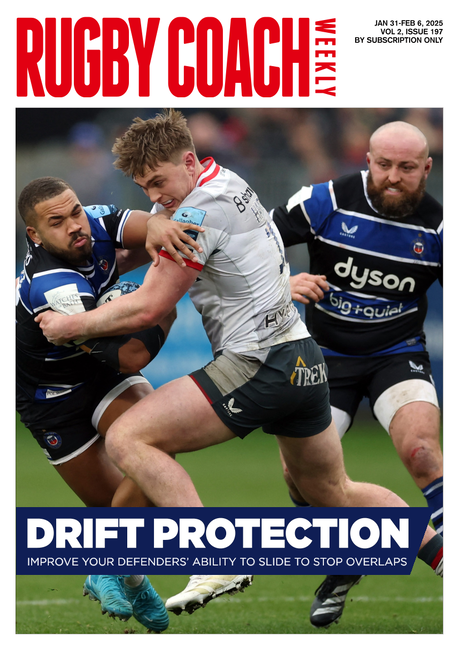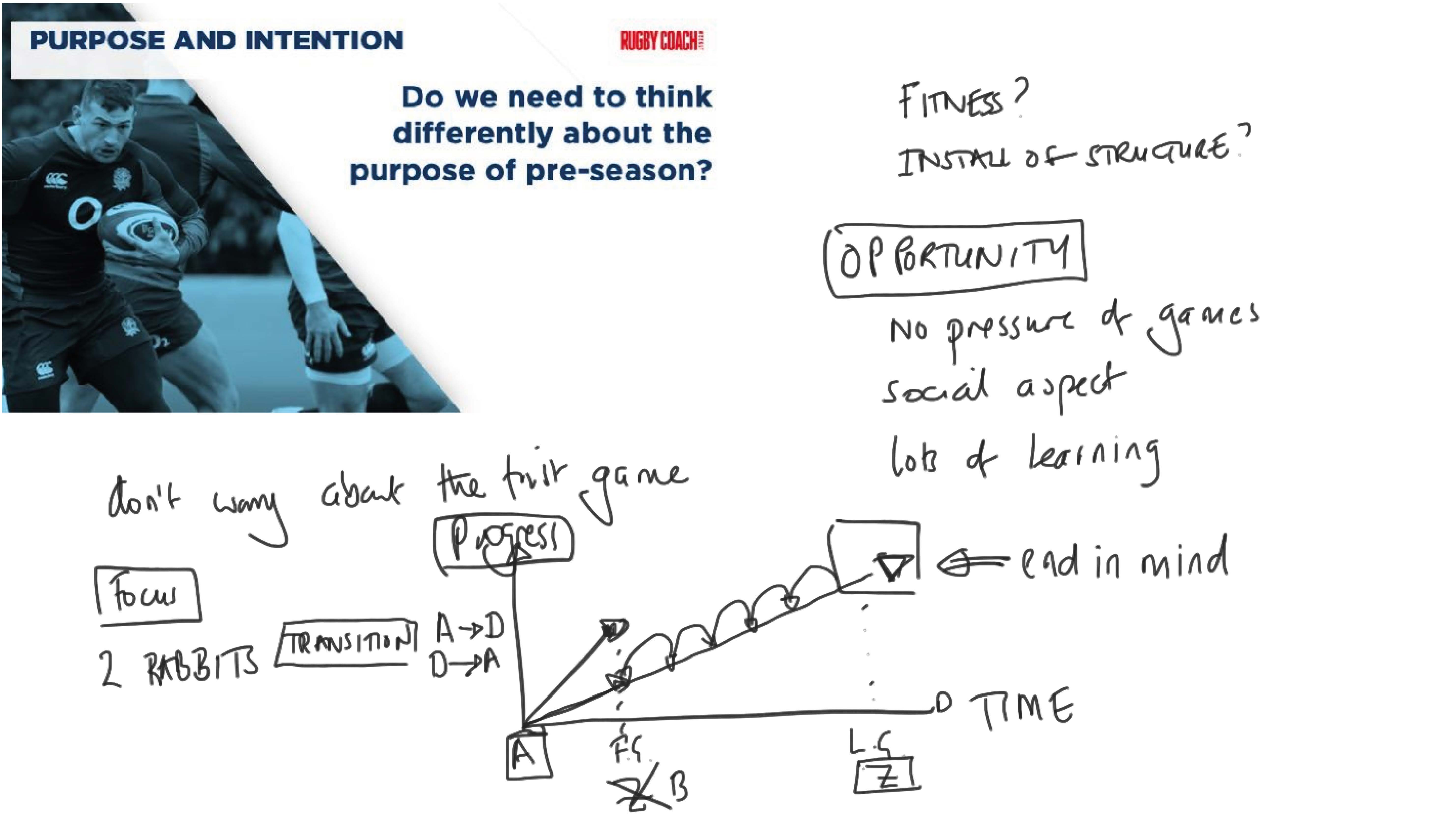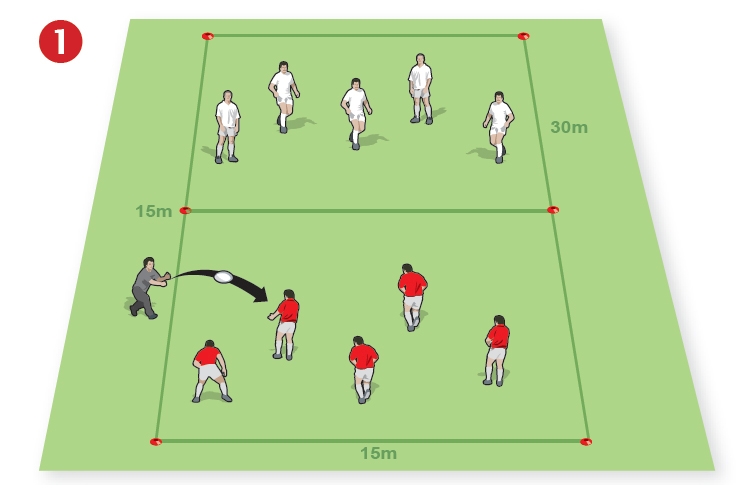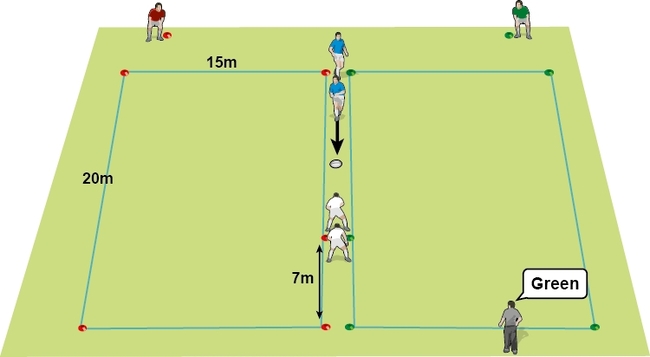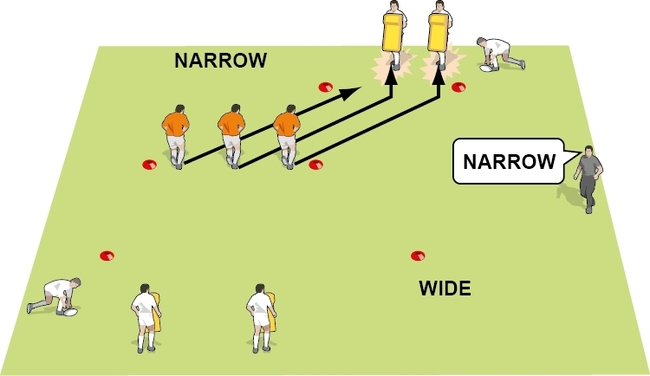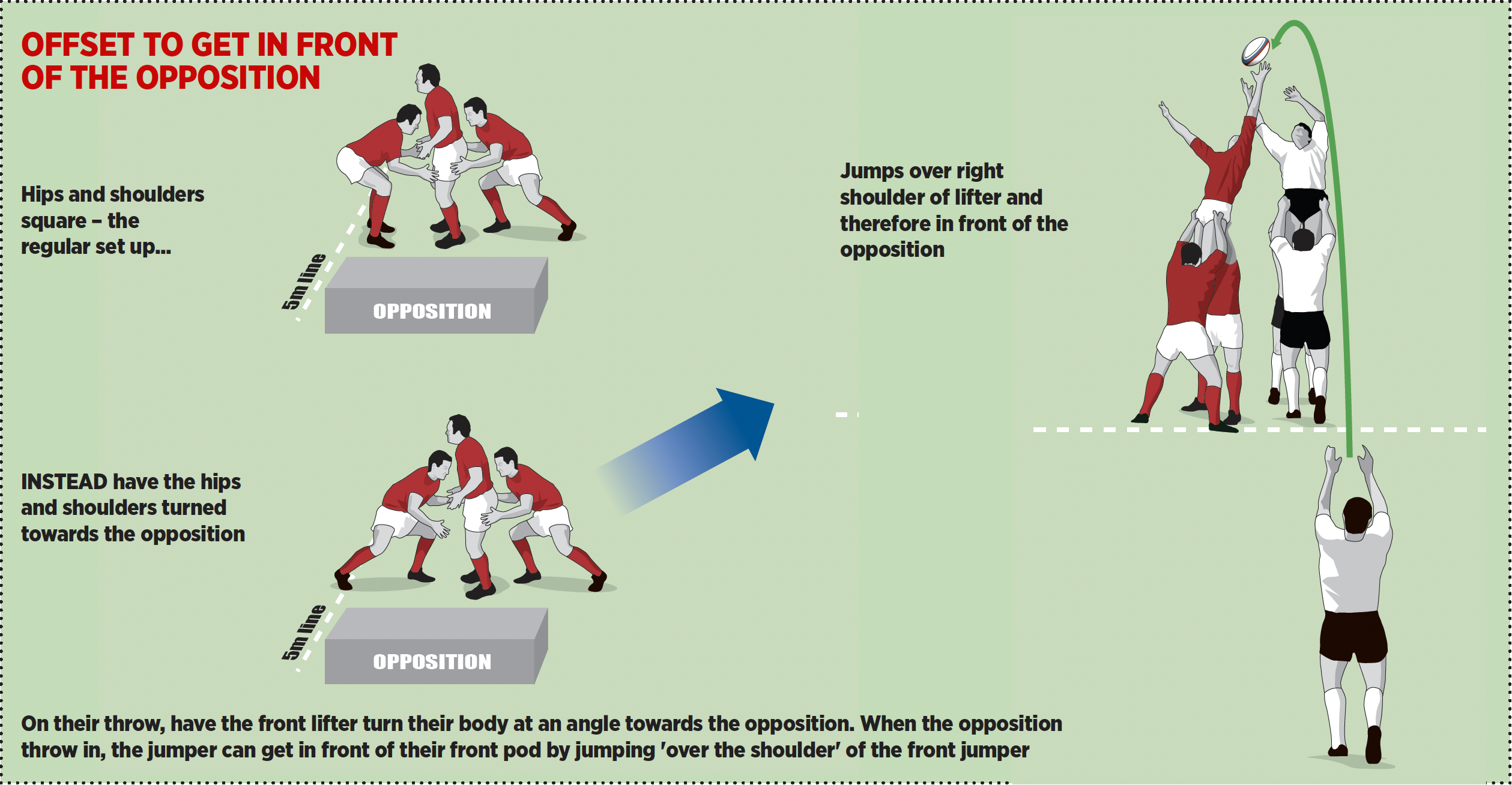Pre-season | Week 3: Tactics time
INTRO | WEEK1 | WEEK 2 | WEEK 3 | WEEK 4
Now we are looking to set out our tactical stall for the remainder of the season. Get your players thinking about their fitness and skills in terms of attack and defence.
Your players will now know what is expected of them in terms of their fitness, and some of them will be training outside of your sessions to catch up (with your encouragement and endorsement of course). Now you need to put the fitness into tactics. That is being in better condition to attack and to defend.
Approach for this session
Start with a warm-up game that puts pressure on either the attack or the defence to work hard. You can do this in touch rugby by overloading the attack or the defence. Or by keeping the teams equal but making the defenders have to do a press up after every touch tackle (or the attackers).
Now, we are going to increase the physicality. There will not be full-on tackling or rucking, but it will start to get a little more rough and tumble.
The session will finish off with quite a lot of contact, though you can adjust that depending on the players and the ground conditions.
Session time plan
Session time 85 mins (including breaks for feedback and water)
15 mins Warm-up games
30 mins Attack and defence games
10 mins Skills blow out
20 mins Mauling game
Activities
Warm-up
Play normal games of touch rugby, but overload either the attack or the defence to add pressure on those areas.
Attack and defence games
Now split into two teams on a pitch that suits the number of players (e.g. half a pitch for 7v7). One team will attack for five goes while the other team defends. Start with a set piece (like a 4v4 scrum or lineout depending on numbers). Use a grab tackle – if the player is grabbed, he can either offload the ball immediately or go to ground. The tackler has to wait for two seconds before he can try to pick up the ball. However, if another attacker gets over the ball, then he cannot go for it. Play until there is a mistake or an infringement.
Once the attack has had five goes, swap so that the defending team become the attackers. Have a one minute feedback session at the end of one round and then repeat several times.
• Attack and defence games can become a long monologue from the coach as you tell the players how to play. Be brave, and then the players decide. Ask them quick questions, like “What happens when you step back inside and not pass out” or “Where are the gaps in defence”. You will soon find out who you will want as leaders on the field when the season starts.
Skills blow out

You should now work on some contact skills.
Each player should ruck out 10 players from the ball, complete 10 tackles and then rip the ball five times. Players should strive to maintain form and technique, even as they become increasingly fatigued.
Mauling game
Finish the session off with a high-intensity game in a very confined space. This will be physical, and the size of the area will determine how heavy the collisions will be. Play 5v5 at most, and either play two games at once or swap teams around after a couple of minutes. It is a normal game of rugby but with no kicking and no passing. Start from any infringement (or the middle after a try) with the two teams no more than one metre apart.
PRE-SEASON POINTERS
Should we warm down?
A warm down is where the players spend time doing gentle jogging and stretches to help reduce muscle soreness. It is a good idea to introduce to players, especially after tough fitness sessions. It can just be five minutes. They can jog around the pitch, stopping at the halfway line and corners, and performing a gentle stretch on their legs, or backs.
Gum shields at training
Your players should be wearing their gum shields at all times in training. It doesn’t matter whether they are going to be taking contact or not, it helps them get used to being fatigued and breathing hard with the gum shield in. The same goes for any protective gear like head guards or shoulder pads that they might wear on match days. Tell them that if they want to train like they want to play, they need to be in rugby-ready mode in what they are wearing.
Newsletter Sign Up
Coaches Testimonials

Gerald Kearney, Downtown Las Vegas Soccer Club

Paul Butler, Florida, USA

Rick Shields, Springboro, USA

Tony Green, Pierrefonds Titans, Quebec, Canada
Subscribe Today
Be a more effective, more successful rugby coach
In a recent survey 89% of subscribers said Rugby Coach Weekly makes them more confident, 91% said Rugby Coach Weekly makes them a more effective coach and 93% said Rugby Coach Weekly makes them more inspired.
Get Weekly Inspiration
All the latest techniques and approaches
Rugby Coach Weekly offers proven and easy to use rugby drills, coaching sessions, practice plans, small-sided games, warm-ups, training tips and advice.
We've been at the cutting edge of rugby coaching since we launched in 2005, creating resources for the grassroots youth coach, following best practice from around the world and insights from the professional game.
